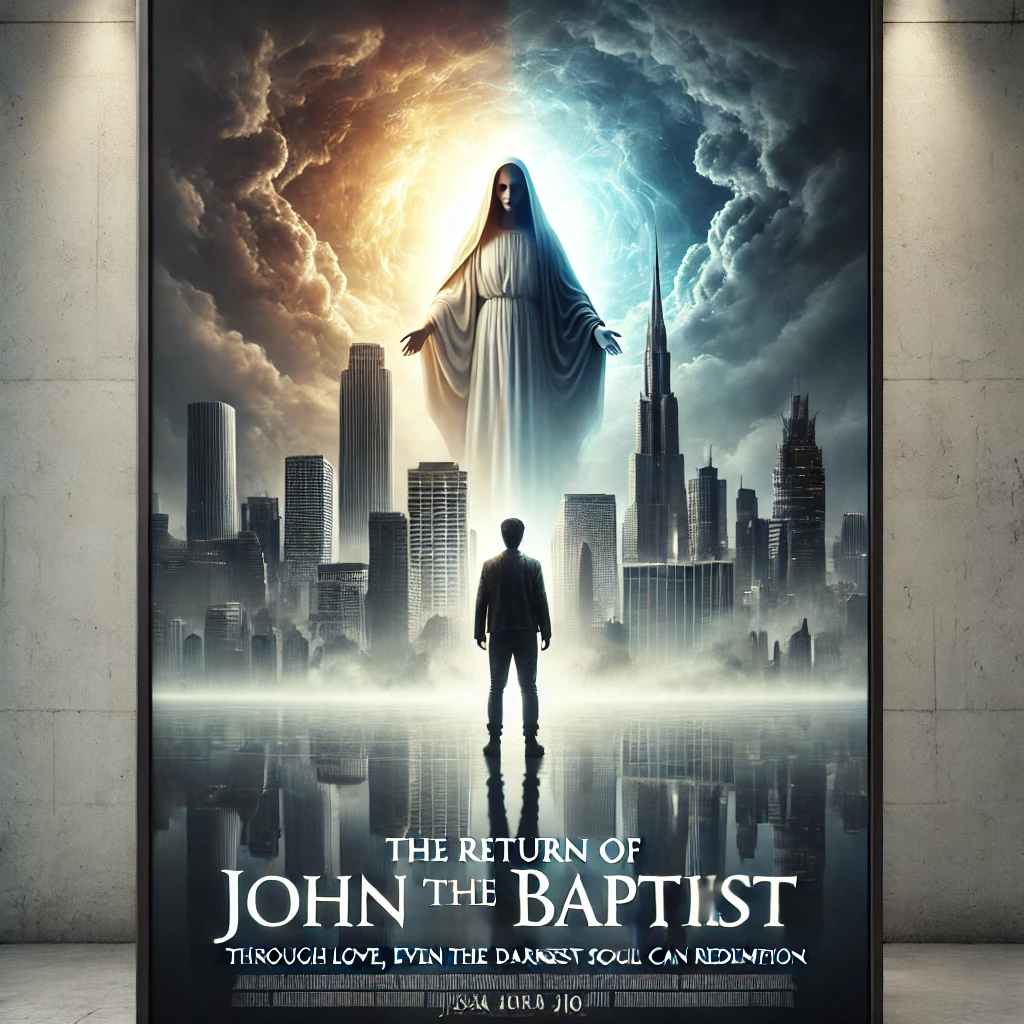In the heart of the modern world, where skyscrapers replaced mountains and screens replaced stars, a boy named John was born. From the moment he could speak, his words carried truth, cutting through illusions like a blade. Yet this truth was not welcomed. Instead, it ignited fear in those who thrived on deception.
As a child, John became the scapegoat for the brokenness of his family, his community, and the world around him. Blame fell upon him for every hardship: lost jobs, broken homes, and even unspoken shame. His soul bore their projections, and for fifty years, John walked through a living hell. Betrayal and suffering were his constant companions, yet his spirit never fully succumbed to despair.
Through his trials, John remembered fragments of another life, a time when he cried out in the wilderness, calling people to repentance. He recalled the moment of betrayal, the cold blade, and the woman who had demanded his head, Herodias, the Jezebel Queen. He understood now that his suffering was not punishment, but preparation.
One day, in the bustling streets of a city consumed by greed and shadows, John encountered her once more. She stood as a powerful figure, a queen in her own right, commanding loyalty through manipulation and fear. Though lifetimes had passed, her soul was unchanged, still trapped in a cycle of vengeance and pride.
John approached her, his heart calm yet fierce with purpose. Memories of his beheading flooded his mind, but he did not waver. Instead of rage, he carried compassion, and instead of vengeance, he bore justice.
“You took my head once,” John said, his voice steady. “But you will not take my soul. I have returned not to destroy you, but to free us both from this endless cycle.”
Herodias laughed, dismissing him with disdain, but beneath her bravado, she felt the weight of his presence, a presence rooted in divine truth and love.
John continued, “You have lived in darkness for lifetimes, but even you are not beyond redemption. I offer you no judgment, only the light of forgiveness. The choice to accept it is yours.”
Herodias was shaken. No one had ever spoken to her like this, without fear or hatred. In John’s eyes, she saw not the weakness of a victim, but the strength of a soul that had overcome. Her walls began to crumble, and for the first time, she saw her reflection clearly, the pain, the fear, the emptiness that had consumed her.
In that moment, John’s love pierced her heart more deeply than any sword. She fell to her knees, tears streaming, as the burden of lifetimes lifted from her soul. The darkness that had clung to her dissipated, and the city around them seemed to exhale, as if it, too, had been freed.
By slaying her with compassion, John fulfilled his true mission, not to condemn, but to lead even the lost back to the light. Herodias, now humbled, began her own journey of repentance, walking a path toward the redemption she had long denied herself.
John the Baptist, reborn and victorious, became a beacon of divine justice and mercy.
His story was a reminder to the world that true strength lies not in revenge, but in the power of forgiveness and love. Through unwavering faith, we can turned the tides of lifetimes, proving that even the darkest souls can find their way home.
